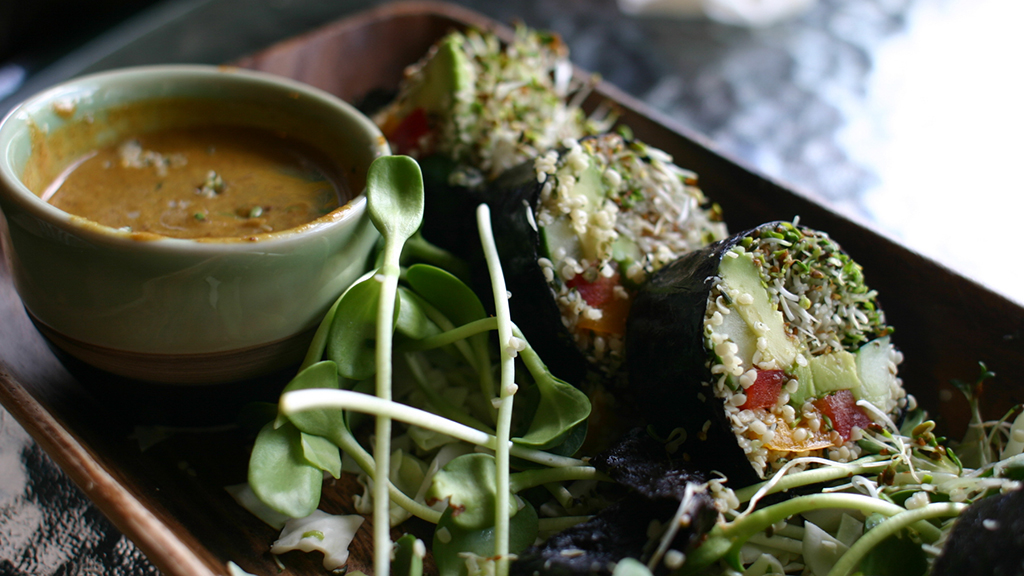If you’ve decided to go vegan because you think it’s better for the planet, that might be true—but only to an extent.
A group of researchers has published a study in the journal Elementa in which they describe various biophysical simulation models that compare 10 eating patterns: the vegan diet, two vegetarian diets (one that includes dairy, the other dairy and eggs), four omnivorous diets (with varying degrees of vegetarian influence), one low in fats and sugars, and one similar to modern American dietary patterns.
What they found was that the carrying capacity—the size of the population that can be supported indefinitely by the resources of an ecosystem—of the vegan diet is actually less substantial than two of the vegetarian diets and two out of the four omnivorous diets they studied.

A typical vegan lunch
Here’s Chase Purdy, putting it more simply for Quartz:
When applied to an entire global population, the vegan diet wastes available land that could otherwise feed more people. That’s because we use different kinds of land to produce different types of food, and not all diets exploit these land types equally.
- Grazing land is often unsuitable for growing crops, but great for feeding food animals such as cattle.
- Perennial cropland supports crops that are alive year-round and are harvested multiple times before dying, including a lot of the grain and hay used to feed livestock.
- Cultivated cropland is where you typically find vegetables, fruits and nuts.
The five diets that contained the most meat used all available crop and animal grazing land. The five diets using the least amount of meat—or none at all—varied in land use. But the vegan diet stood out because it was the only diet that used no perennial cropland at all, and, as a result, would waste the chance to produce a lot of food.
One downside of non-perennial crops is that when springtime rolls around, the frozen soil’s stored nutrients usually drain into rivers and streams before farmers have a chance to plant the next season’s crops. Here’s Brooke Borel, reporting for NOVA Next in 2014:
Perennial crops, on the other hand, could survive for many seasons, axing the annual cycle and lessening farming’s wear-and-tear on the environment. Some varieties could also have longer, lusher root systems that would sink deeper into the ground, helping maintain soil health and curbing erosion. They could even help the plants survive a drought.
Such a system would allow for longer growing seasons, too, taking advantage of the late autumn and early spring months when fields usually lay bare. Assuming that perennial crops produced the same amount as their annual counterparts—a big assumption—this would provide additional food each year from the same plot of land. A shift from annuals to perennials, or a mixture of both, could benefit both the environment and food security.
If modern agriculture in the U.S. were adjusted to the vegan diet, according to the study in Elementa, we’d be able to feed 735 million people—and that’s from a purely land-use perspective. Compare that to the dairy-friendly vegetarian diet, which could feed 807 million people. Even partially omnivorous diets rank above veganism in terms of sustainability; incorporating about 20 to 40% meat in your diet is actually better for the long-term course of humanity than being completely meat-free.
Of course, some environmental ethicists would argue that this is an overly utilitarian, anthropocentric view of how a person should live. What the study doesn’t take into account is the moral question of whether or not we should be raising livestock for our benefit at all. So while the jury’s out on whether veganism is a good way to sustain the future of humanity, it’s certainly a viable life choice for people who are vegan for other reasons, including dietary or ethical concerns.
Comments
comments
